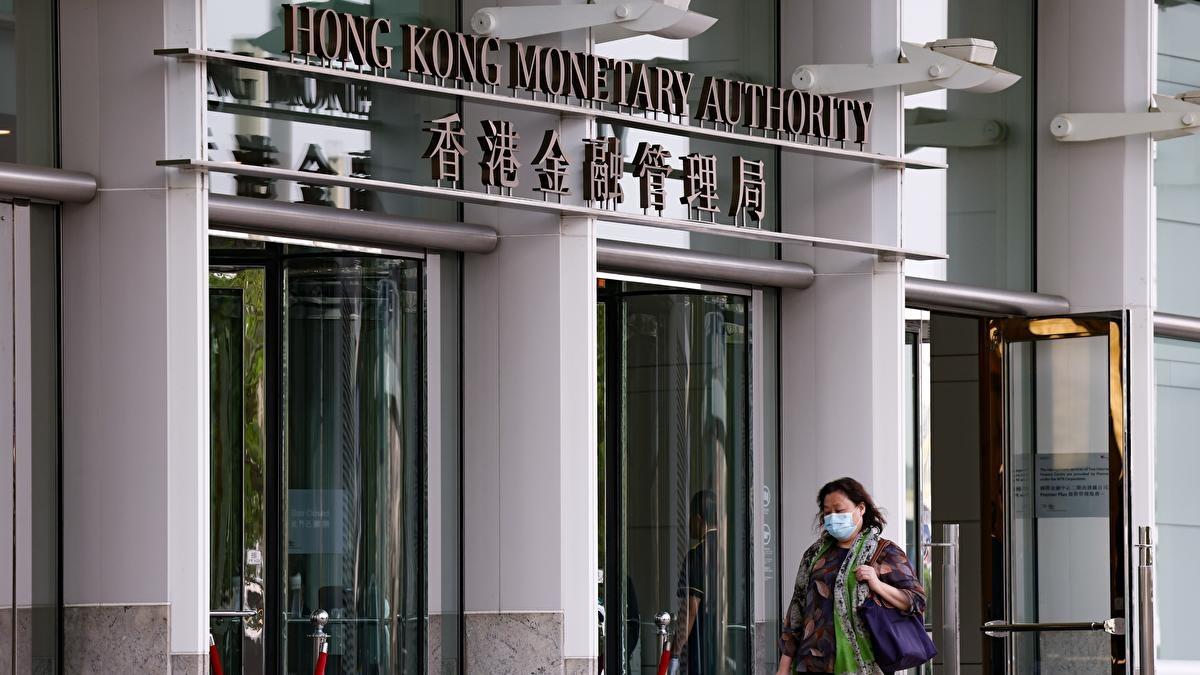
Hong Kong’s Exchange Fund posted an investment income of HK$54.3 billion ($6.96 billion) in the first quarter of the year, mainly boosted by foreign equities, the Hong Kong Monetary Authority said Monday.
Investment income from foreign equities reached HK$36.3 billion in the first quarter, up more than 42 percent year-on-year and nearly 10 percent quarter-on-quarter.
Investment income from bonds last quarter was HK$25.1 billion, down some 43 percent year-on-year and about 65 percent quarter-on-quarter, the sixth consecutive profit-making quarter
However, Hong Kong equities made a loss of HK$2.3 billion, turning from profit to loss year-on-year, while the quarter-on-quarter loss narrowed 54 percent. It was the fourth consecutive loss-making quarter.
READ MORE: Hong Kong Exchange Fund's Q1 investment income hits HK$97.9b
Investment income from bonds last quarter was HK$25.1 billion, down some 43 percent year-on-year and about 65 percent quarter-on-quarter, the sixth consecutive profit-making quarter. Foreign exchange recorded a loss of HK$4.8 billion due to the strength of the US dollar.
The HKMA revised that the Exchange Fund has made an investment income of HK$226 billion in 2023.
At the Legislative Council Financial Affairs Panel meeting on Monday, HKMA Deputy Chief Executive Howard Lee Tat-chi explained the performance of the Exchange Fund: “Bond yields in different major economies increased in the first quarter. Higher coupon income from bond investment has offset the impact of falling bond prices, resulting in gains from bond investments.
He said Hong Kong’s stock market was relatively weak in the first quarter, but it started to perform well last month and has risen about 10 percent in the second quarter, while the US S&P 500 Index turned downward starting last month.
Hong Kong investors and homebuyers must be aware of the interest rate risk, as the pace of future interest rate cuts by the US Federal Reserve is still uncertain
“We cannot expect that the investment income of the Exchange Fund will continue to be stable, as the financial market is constantly changing and the market performance is volatile,” Lee said.
Also at the panel meeting, HKMA Chief Executive Eddie Yue Wai-man pointed out that the future performance of the capital market depends on three factors: economic and inflation data in the United States that may affect the pace of interest rate adjustment by the US Federal Reserve; geopolitical tensions that may increase global inflationary pressure; and the economic recovery momentum in the territory and the Chinese mainland that may affect the asset price performance in the region.
“Amid a complex environment, the HKMA will adopt a more defensive strategy to manage the Exchange Fund, maintain sufficient liquidity, and respond to different financial risks,” Yue said.
He said Hong Kong investors and homebuyers must be aware of the interest rate risk, as the pace of future interest rate cuts by the US Federal Reserve is still uncertain.
“Hong Kong interest rates are likely to remain at a high level for a period of time. If you want to engage in property purchase, mortgage financing and lending activities, you must be careful of interest rate risk,” Yue said.
The Northbound Stock Connect has recorded net fund inflows in the past three months, reversing net fund outflows last year. The Northbound Bond Connect has always recorded net fund inflows
The HKMA chief executive added that Hong Kong dollar interbank rates generally follow US dollar interbank rates and changes in relation to local demand.
“As for the Hong Kong dollar exchange rate, which has remained stable in the past few months, the exchange rate has strengthened slightly in the past few weeks due to the demand by local-listed companies to pay dividends in Hong Kong dollars and the rebound of the stock market,” Yue said.
READ MORE: Hong Kong needs targeted fiscal policies for growth, not deficit scare
Hong Kong’s financial system remains highly resilient, with ample capital and liquidity buffers, and market operations have been smooth, he added.
Yue also said as the mainland economy is slowly recovering, investor sentiment has been improved.
“The Northbound Stock Connect has recorded net fund inflows in the past three months, reversing net fund outflows last year. The Northbound Bond Connect has always recorded net fund inflows,” he said.


